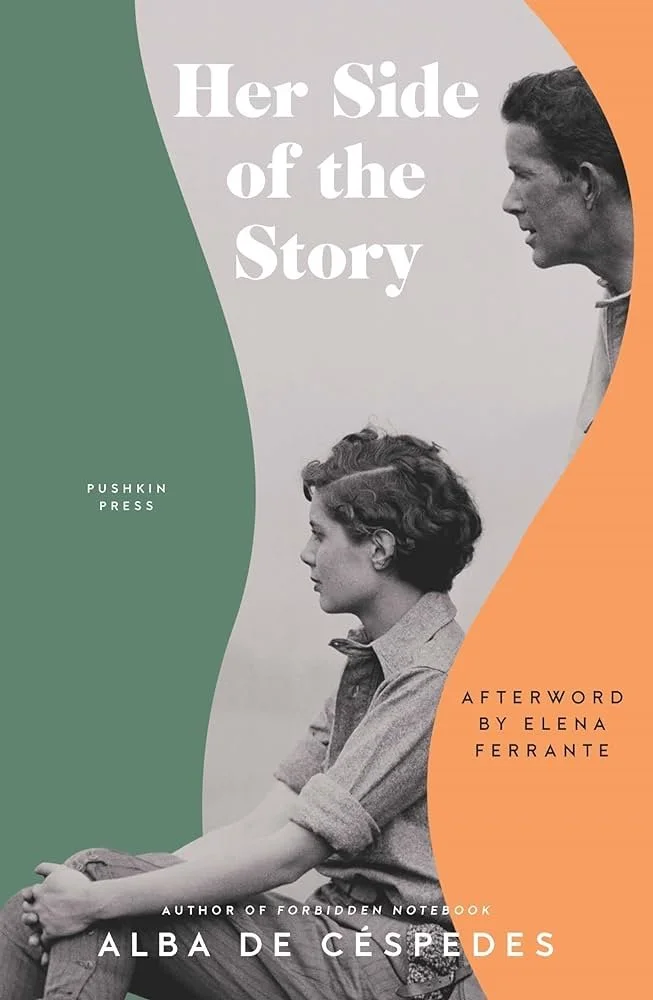It's easy to get drawn to looking at a real estate agent's window and dream of the ideal home you might inhabit. In this book Deborah Levy muses upon how she's done this too especially because her “crumbling apartment block on the hill” is far from ideal. But, rather than planning to acquire bricks and mortar, Levy more often muses upon what shape her “unreal estate” might take as well as the homes and possessions which might be included in her “portfolio”. This playfully allows her to imaginatively craft and mould a fictional space and habitation that's not anchored to reality. Moreover, it leads to more searching thoughts upon what it means to inhabit a life through a particular lens; in Levy's case as a writer, a daughter, a mother, a friend, a divorcee and a woman who is about to turn sixty. These autobiographical meditations obviously have a deep personal meaning for the author but they also speak to what it means to be human and the troubling question: how do we inhabit the present moment when we can so often be preoccupied by what we've lost and what we wish to have?
There's a delicious exuberance to Levy's journey as she moves between temporary residences in Mumbai, New York, Paris, London, Berlin and Greece. This takes place over the course of 2018 as she's working on her novel “The Man Who Saw Everything” and it's so compelling to read about the images, themes, places and influences “David Lynch, one of the film directors who had most inspired my approach to fiction” which helped shape that book. The same was true of the previous instalment of Levy's memoirs “The Cost of Living” when she was writing her novel “Hot Milk”. The three volumes of what's been branded Levy's 'Living Autobiography' thus make up a fascinating commentary on the writing process and an invaluable exploration of the influences which fed into the creation of her unique novels. However, I have to admit, I favour reading Levy's memoirs more than the fiction itself which I admire and appreciate but don't love as much as reading about her thought process and endearing experiences. Deep issues to do with art, feminism and humanity are paired with humorous wit and flights of fancy which make the 'Living Autobiography' a delicious and richly enjoyable experience.
Somehow Levy makes the mundane and embarrassing things in life seem wonderfully glamorous. She collects an eclectic range of objects “Electric bikes, wooden horses and silkworms would be part of my property portfolio”. She makes drinks when people visit her by chilling glasses or squeezing oranges and she goes to great lengths to recreate a particular guava ice cream. She's the ultimate eccentric aunt whose party I want to crash as a shyly curious Patrick Dennis. Towards the end of the book Levy herself crashes a London literary party and has an unsavoury encounter with “a male writer of some note, but not in my own hierarchy of note”. It's delectable how she puts him in his place. Equally, she hilariously mocks the way we project images of our lives and habitations on social media: “Look! Look on Twitter: our ducks are sleeping under the willow trees!... Look! Look at you looking on Instagram! Here we are, setting off on our country walk with Molly, our sweet-natured Burmese python!” She rightly identifies the physical accumulations and projections of our lives as flimsy illusions disconnected from any true sense of security or happiness. She brilliantly describes how “If real estate is a self-portrait and a class portrait, it is also a body arranging its limbs to seduce.”
There's something deeply consoling about following Levy's non-conventional approach to living, creating art and establishing a constantly-evolving amorphous sense of home. I drank deeply from this book and savoured every drop, but I'm still wondering what filthy rhyme she invented to remember the code to get into her Paris apartment. Perhaps, if I'm lucky, she'll one day sing it for me. More seriously, although this is labelled as “the final volume” of the ‘Living Autobiography’ I don’t see any reason why it should end and we shouldn’t hope for further instalments detailing Levy’s life and valuable insights.









